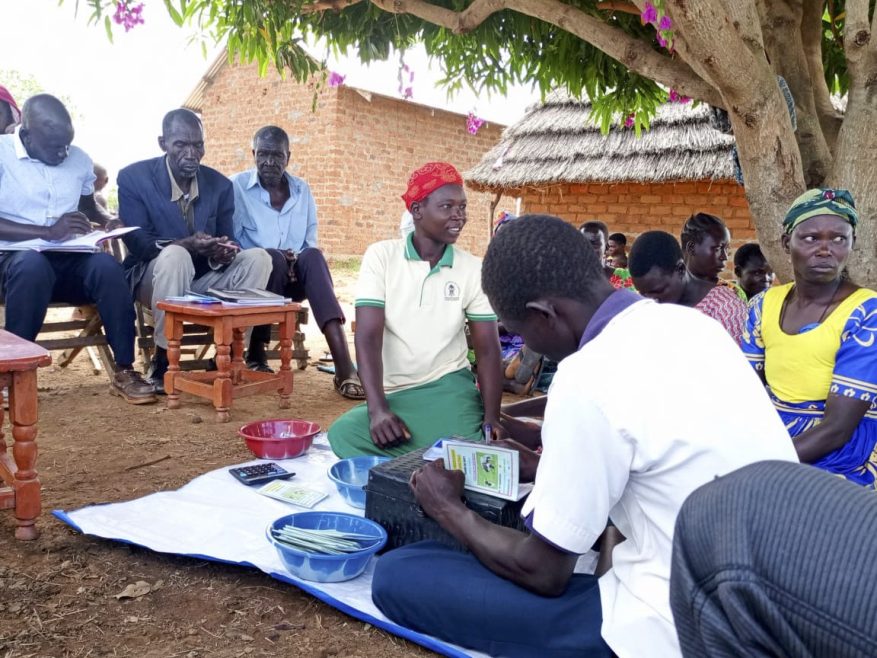An innovative e-voucher system, implemented through strategic partnerships with the private sector, is making a significant impact on self-reliance and food security for refugee farmers in Uganda’s Adjumani district. Self Help Africa is spearheading this initiative, thanks to funding from Irish Aid, as part of the Sustainable Food for All project, improving refugee smallholders’ access to improved sesame seeds and marking an important step towards greater independence and sustainable livelihoods in refugee communities.
The five-year project, serving both Ugandan nationals and refugees, has made considerable progress in empowering refugee communities to achieve food security and economic self-sufficiency. In Adjumani, a district hosting a substantial refugee population, the project’s effect on refugee farmers’ ability to provide for themselves has been particularly remarkable.
Out of 952 participants in Adjumani, 419 (44%) are refugees, demonstrating the project’s strong commitment to including displaced populations. Among these refugee participants, 224 are young people aged 18-35 and 166 are female. This data highlights the project’s inclusive approach, particularly in empowering youth and women, who often face additional barriers in achieving food security and self-reliance in refugee context.
Central to the project’s success is its collaboration with private sector partners, particularly input suppliers. This market-driven approach ensures that refugee farmers have access to high-quality agricultural inputs, bridging the gap between smallholder farmers and commercial agricultural markets. By involving input suppliers directly in the e-voucher system, the project not only improves access to seeds but also strengthens the local agricultural value chain.
The e-voucher system, developed by local Fintech company Mambo Pay, has proven to be an effective tool for connecting refugee farmers with these private sector input suppliers. It provides a dignified, market-oriented approach to accessing agricultural inputs. Rather than relying solely on aid, refugee farmers contribute a portion of the cost, fostering a sense of ownership and investment in their path to self-reliance.
By partnering with private sector input suppliers, the project ensures that refugee farmers have access to the same quality of seeds and other inputs as their host community counterparts. This not only improves their agricultural productivity but also integrates them into the formal agricultural market system, a key step towards long-term self-reliance.
As the Sustainable Food for All project continues, its impact on refugee farmers in Adjumani serves as a example of how innovative, inclusive approaches that leverage private sector partnerships can address the complex challenges faced by displaced populations. By providing refugees with the tools, opportunities, and market connections to engage in productive agriculture, the project is not just growing crops – it’s enhancing food security and cultivating self-reliance.

